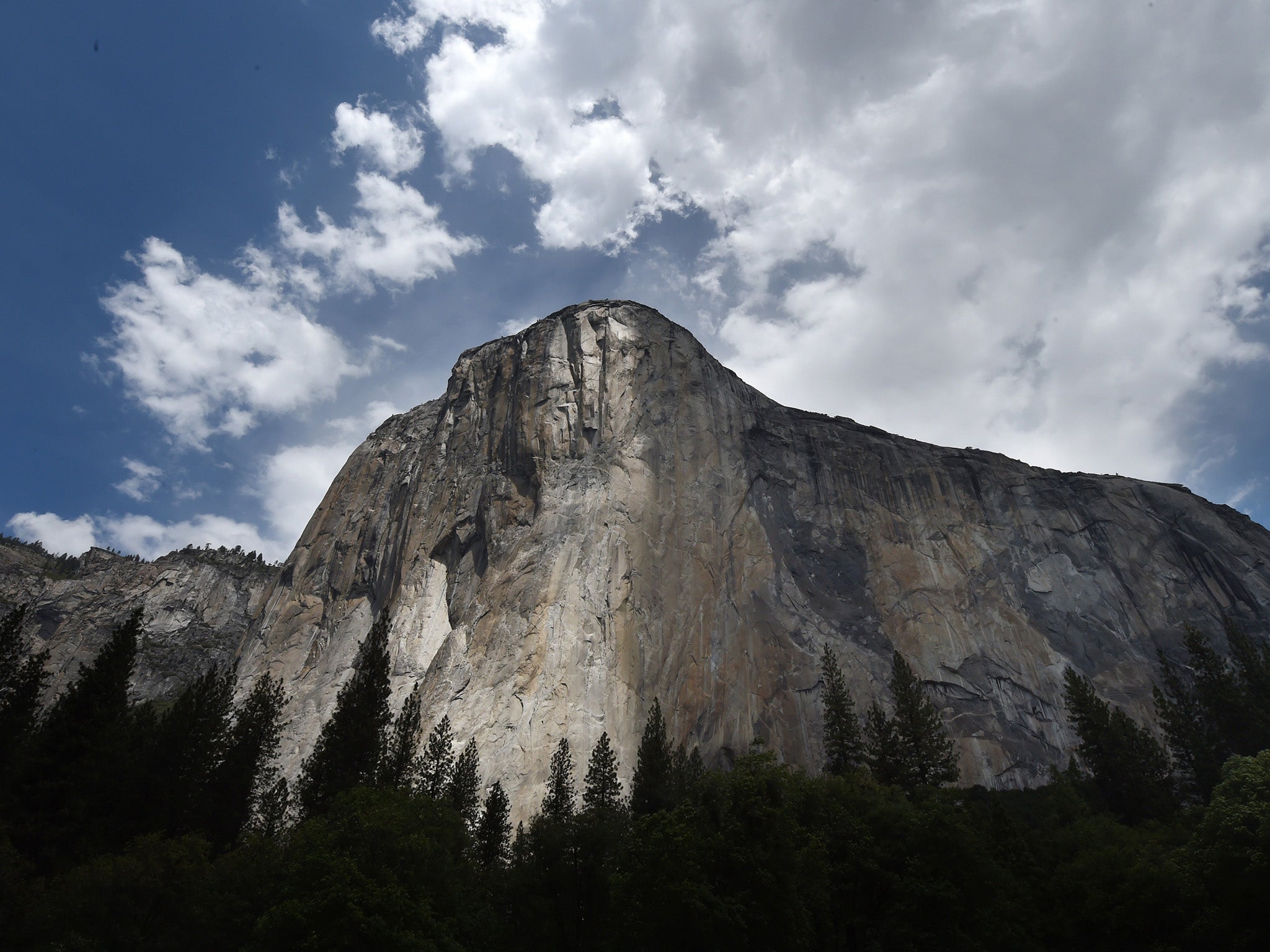Yosemite death: British climber dies after being crushed by falling rocks in national park
Unnamed man died after 1,300 tonnes of rock from the nearby El Capitan formation fell on a popular hiking trail

A British climber has died in Yosemite National Park after a rock fall on a hiking trail.
Parts of the El Capitan granite monolith collapsed while the man and his wife, who was badly injured in the accident, were hiking the trail on Wednesday afternoon, a spokesman for the Californian park said.
The couple were found by a search and rescue team after 1,300 tonnes of the rock from the formation and plunged on the popular trail.
In a written statement released on Thursday, Yosemite spokesman Scott Gediman said: “The victims, a couple visiting from Great Britain, were in the park to rock climb but were not climbing at the time of the initial rock fall.
“The male was found deceased and the female was flown out of the park with serious injuries.”
The couple have not been identified by the park but the US National Park Service said it is working with the British Consulate to notify family members.
Mr Gediman said two other people were initially believed to be missing but were later accounted for by search and rescue teams.
Around 30 climbers were on El Capitan when the slab crashed down from the popular East Buttress climbing route, the Los Angeles Times reported.
Most rockfalls occur during periods of heavy rain, snowmelt or cold temperatures and geologists monitor conditions around rock walls and hillsides for movement.
Granite is a very porous rock so its size is affected by its exposure to water and temperature.
In a study published last year, geologists found the granite cliffs are "breathing" due to the conditions around them and the iconic domes and arches etched into their surface are constantly moving.
Photos posted on social media show plumes of dust filling the canyon in the wake of the crash and witnesses say it "sounded like a huge explosion".
Wednesday’s incident comprised seven rock falls spread over a four hour period, he said, involving a sheet of granite estimated at 130 feet (40 metres) tall, 65 feet wide and three to 10 feet thick about 650 feet up El Capitan – the size of a 13-storey building.
Mr Gediman said the slide was not an unusual occurrence in Yosemite, which sees about 80 rock falls a year, but most do not cause injuries or deaths.
Sixteen people have been killed and 100 others injured in rock falls since park records began in 1857. The last fatality was in June 1999, when climber Peter Terbush was killed below Glacier Point.
El Capitan, one of Yosemite’s best-known landmarks, is considered a world-class challenge for rock climbers.
Additional reporting by Reuters
Join our commenting forum
Join thought-provoking conversations, follow other Independent readers and see their replies
0Comments